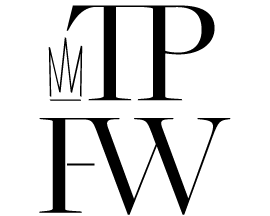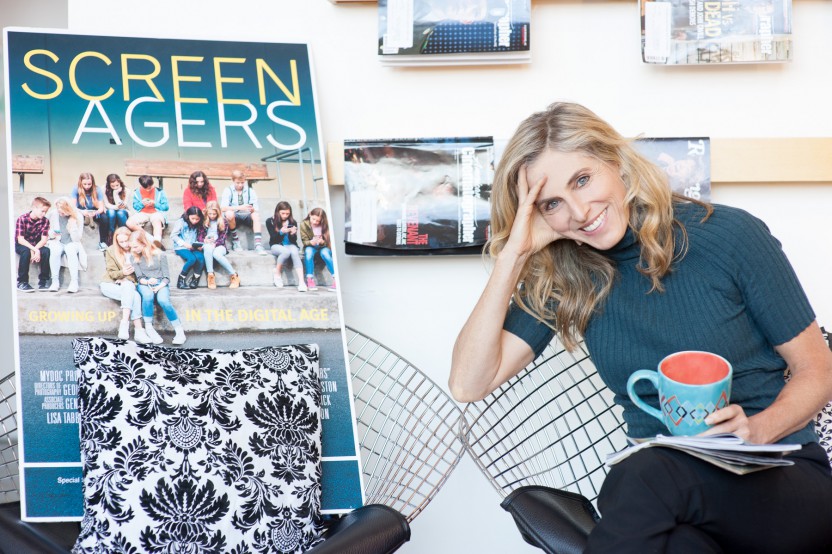Delaney RustonFilmmaker & PhysicianStony Brook, NYStory & Photos by Lauri Levenfeld
|
|
|
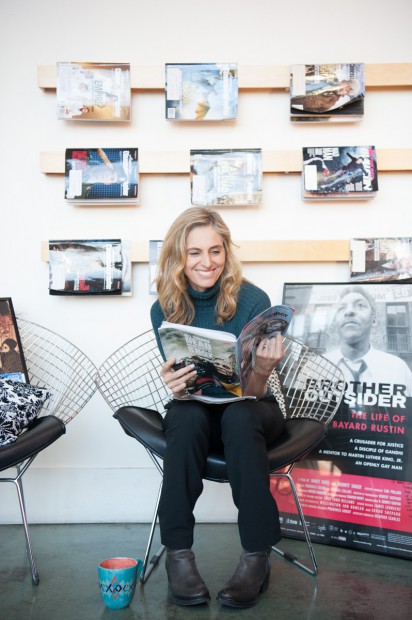 |
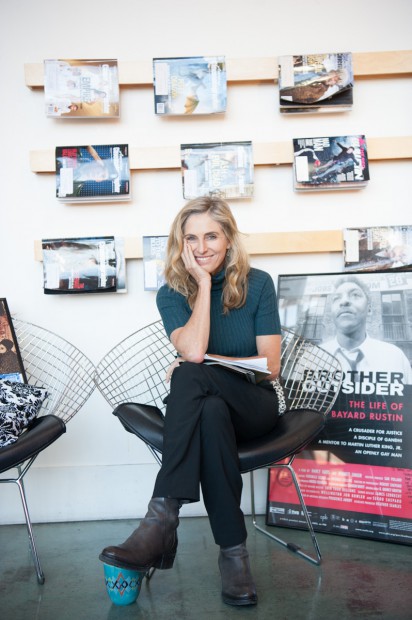 |
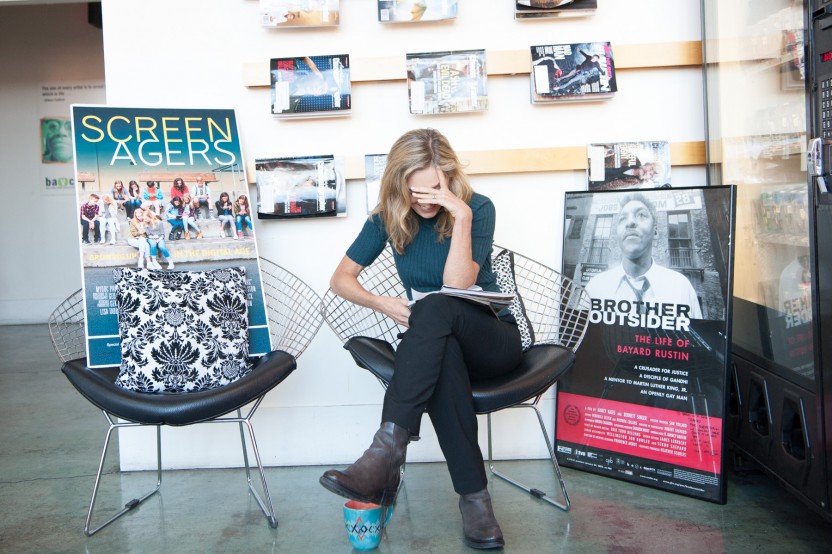 |
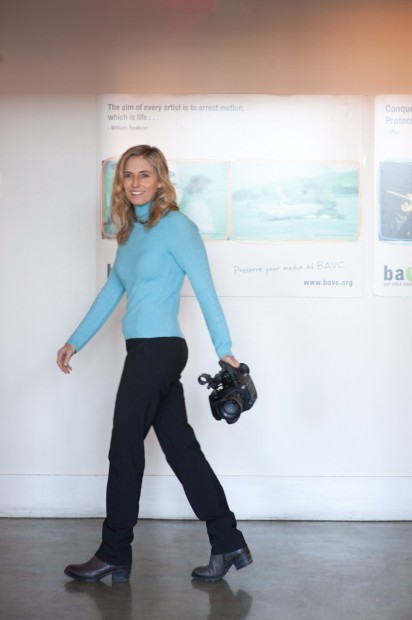 |
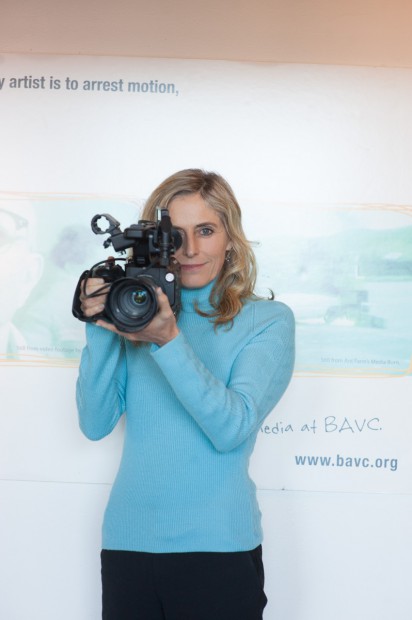 |
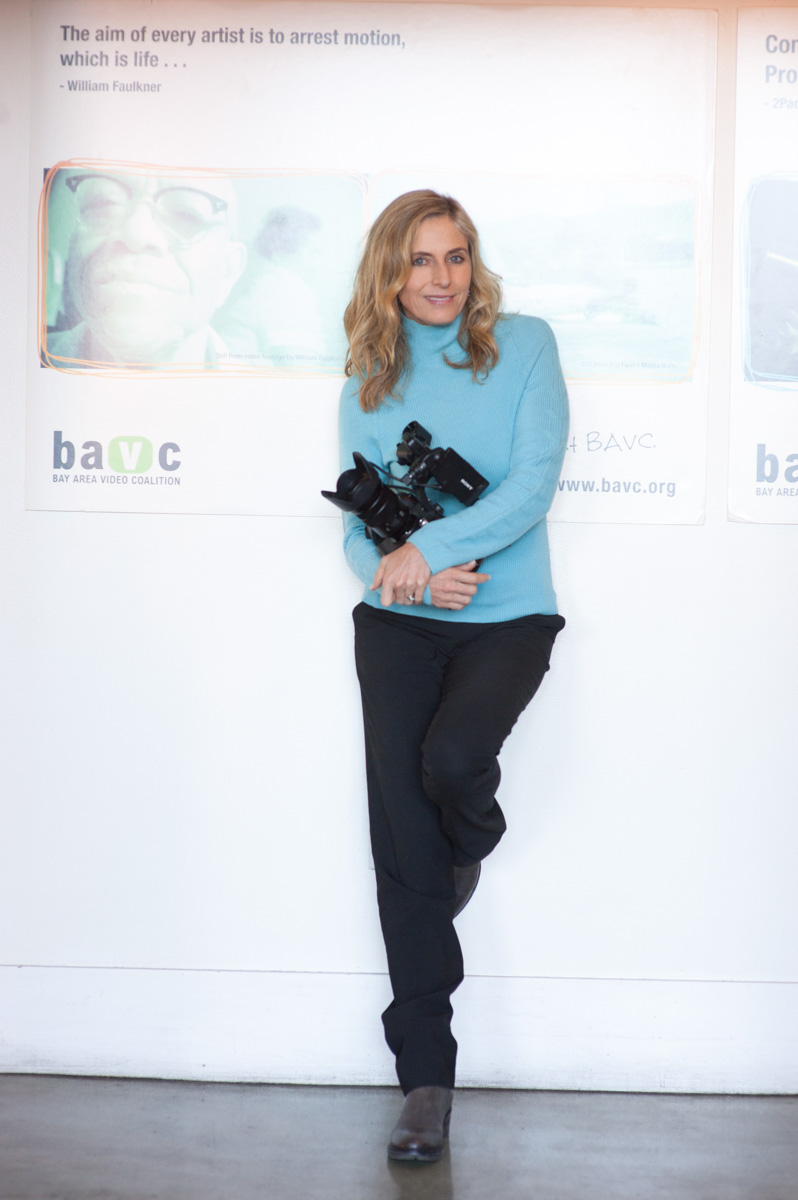 |
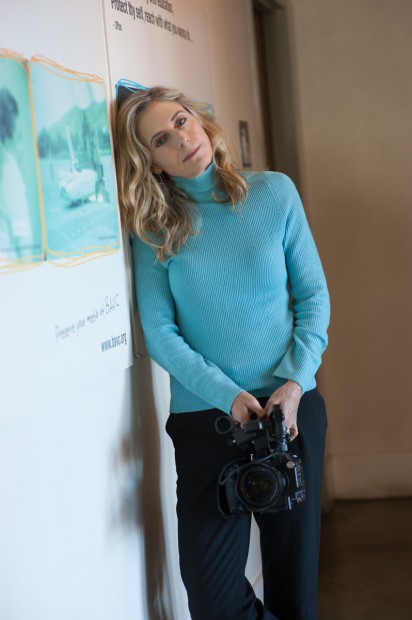 |
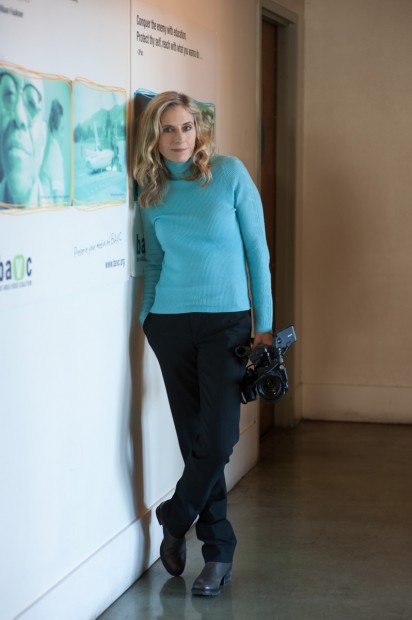 |
|
1.Who are you? What were you like as a child? I would say that three words that come to mind are self-reliant, gutsy and caring. My self-reliance was surely fostered in part by my chaotic childhood. My parents met at UC Berkeley in the 60s. When my dad told my mom that he had schizophrenia, she read that love could cure. Armed with wishful thinking, she married him. The marriage ended when I was 6 months old, she stuck me in the back of an old Chevy and we fled in the middle of the night to Los Angeles. Eventually we moved to the Bay Area and I would see my dad at times—but that is a whole other story (and movie). My mom had her struggles and I was an only child. By age 11, I was working. I used my money to buy my own clothes and such. In terms of gutsy and caring, I recently remembered this example. I grew up in Oakland and my mom was a teacher in San Francisco. After school when I was alone, I would pass the time watching TV. Those days there was a man who was the TV host and would talk between cartoons and shows like Gilligan’s Island. I was nine years old and I remember the moment he talked about the needs of kids with muscular dystrophy and the TV screen revealed kids struggling to move around. I can still remember how moved I was thinking about their lives. The host then announced that the TV station was giving away carnival kits for anyone who wanted to hold a neighborhood event to raise money for these kids. I immediately sent away for the kit, converted my toys into games and recruited some neighborhood kids to help. We never got many patrons but I did it for years. I felt such accomplishment each time I sent my small donation in. My awareness of social injustices as a child and positive experiences of trying to make a small difference, clearly informed my desire to create films for social impact as well as go into primary care medicine.
2. How has curiosity shaped your dual careers as physician and filmmaker? My main curiosity has been about people—their stories, their emotions, their motivations. When I was young I loved talking with adults. I would ask them many questions. I was both trying to make sense of the chaotic world around me, as well as, form connections that I so longed for. Primary care is all about making connections—being able to see things from their perspectives. To do it well and to enjoy it, I believe it really takes an innate curiosity about people and a true respect. Letting others know that you care about them, no matter how down and out they are, is paramount to improving their health. In terms of filmmaking, I was ten when I saw Truffaut’s film, L’Argent de Poche (Small Change), and was utterly fascinated by the kids in the film. I wanted to meet French kids in person. So at age 11 I started saving money to go to France. At 16, I found a French family to live with for a month, and then, I traveled alone. My interactions with people from around the globe convinced me that I wanted to pursue careers that would connect me with people from all backgrounds in meaningful ways. |
I have since learned to speak four languages other than English which has helped in filmmaking and doctoring. I have shot several documentaries in foreign countries.
3. In 2009 you documented the story of your father’s lifetime battle with paranoid schizophrenia. Why did you choose to do this film and was there personal healing in the process? I had been estranged from my dad for almost a decade. Because of his severe illness I had to become unlisted in the phone book—thus the title of the film, Unlisted: A Story of Schizophrenia. During this time I was working as a primary care physician in clinics for the homeless and other disenfranchised. The obstacles I faced in getting them services was appealing, particularly mental health services. I saw all too often how so many of my patients suffering from mental illness were cut off from their families. I realized that severe mental illness doesn’t tear families apart, but it is the inability to get needed treatments and services that is the primary culprit. During this time, my dad started doing better and he was stable on medicines. I started wondering if finally I could have a real relationship with him. Could my young kids actually get to know their grandpa? As much as I wanted all this, I was also very nervous given our painful past. And yet I understood that our story reflected in so many ways, the many patients I had met who were estranged from their families. I decided to film my journey to reconnect with my dad as a way to give others a voice regarding their own personal stories. Our time together let me heal in many ways—such as letting go of unjustified guilt and learning to love in new ways.
4. Who are your mentors/ role models? I was exposed to a wide variety of films due to my work in a movie theater both during high school, and then, at Cornell. But it was not until I saw a film by Judith Helfand that a certain light clicked on. Healthy Baby Girl, was her journey to understand how a medicine caused her to be infertile. What resonated for me was how she used her gritty personal story to explore a larger societal issue. I was able to take classes from Judith and seek advice from her over the years. Another mentor that comes to mind is Barry Rosen who helped me see the value of effective compassionate communication and the power of vulnerability. Barry was an ER Doctor by training who ran an addiction center in Palo Alto. He led a support group for Stanford medical students. I was one of those students and felt incredibly lucky to get his deep insights into the meaning of helping and the importance of really showing up as you are. He would push us to be as honest as possible; to not feel shame and he himself would whole-heartedly tell us his truths. Feeling big time imposter syndrome being at Stanford, the support group was the perfect antidote. Now when I teach medical students, I apply Barry’s teachings and practice mindful self-disclosure. I let them know about some my struggles and invite them to consider sharing their own. It is through our vulnerabilities that real growth and connection occurs. |
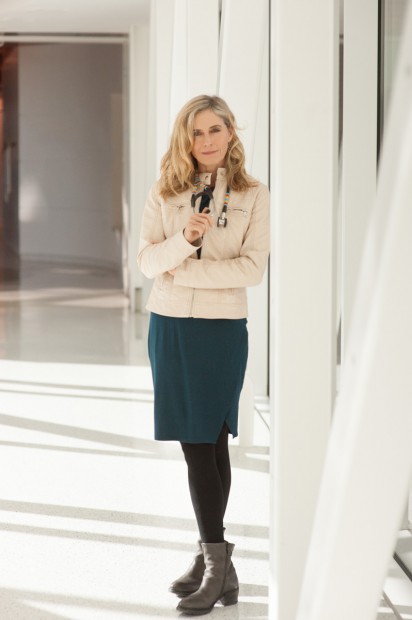 |
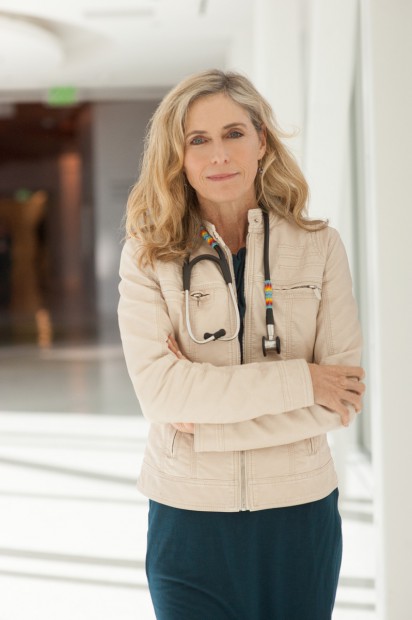 |
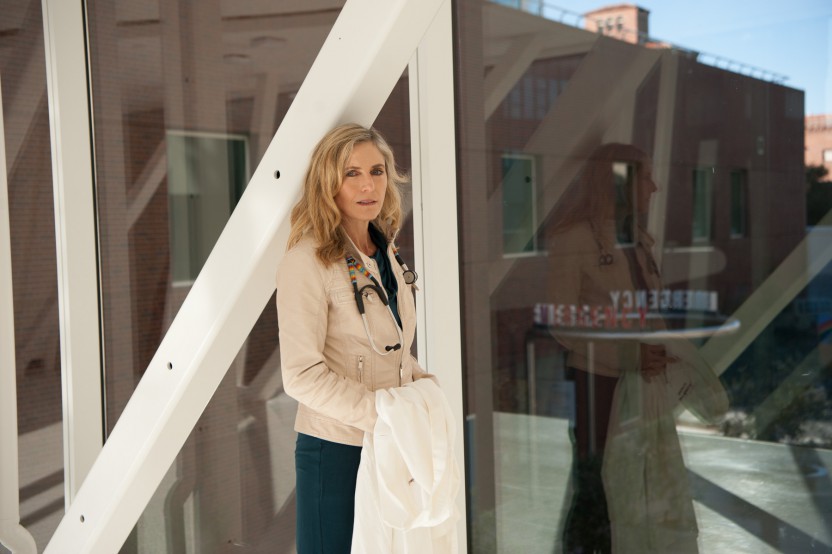 |
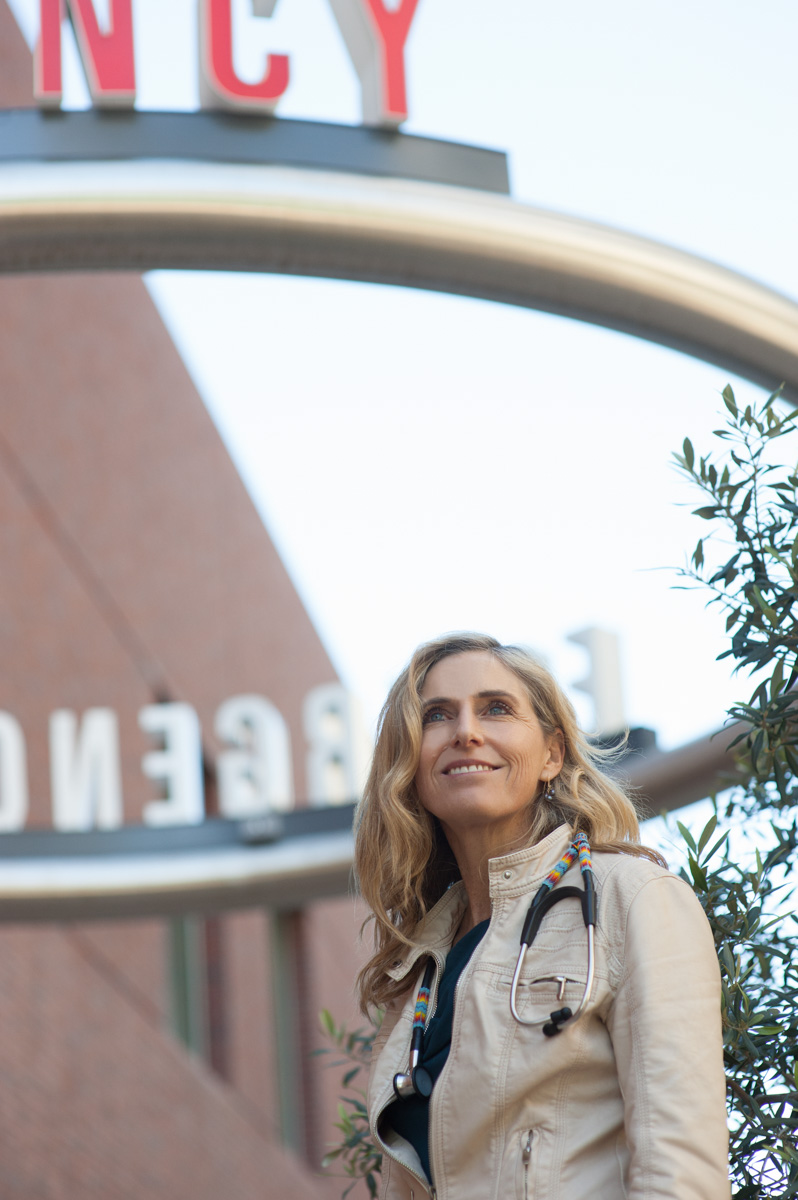 |
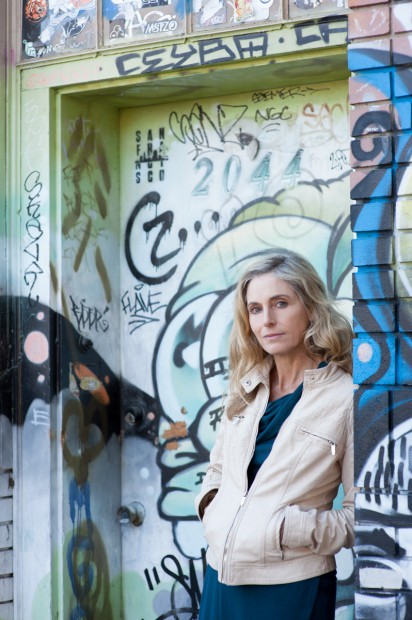 |
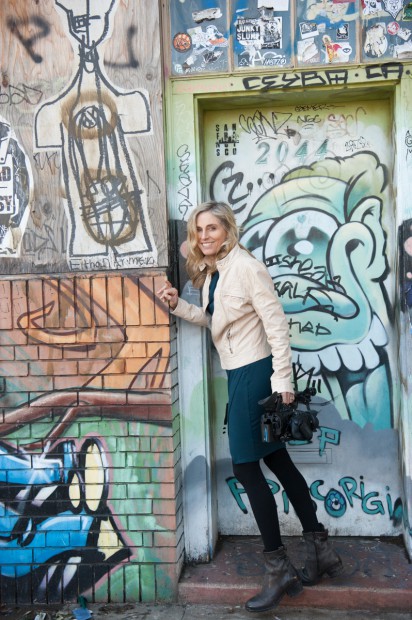 |
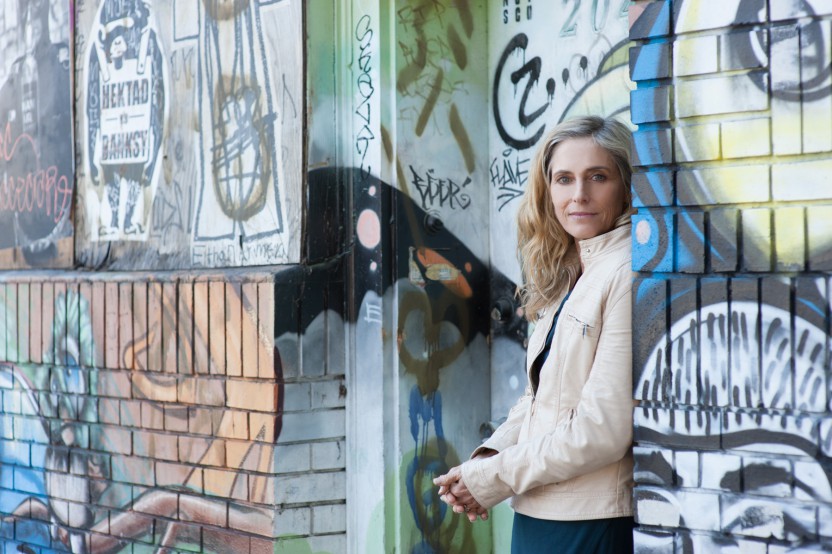 |
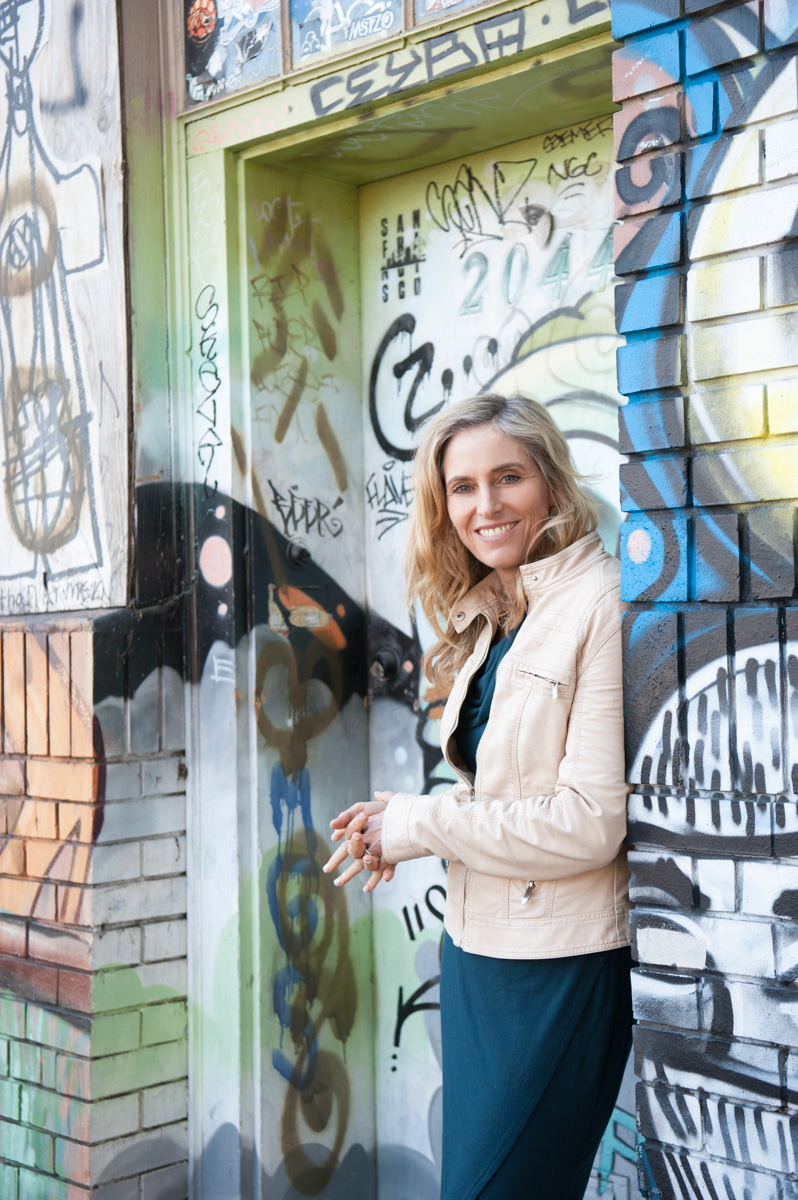 |
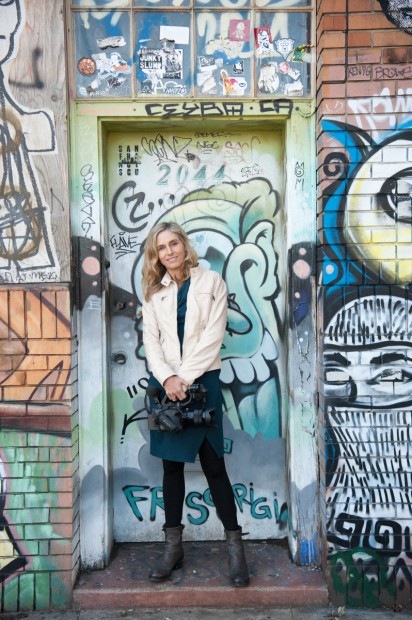 |
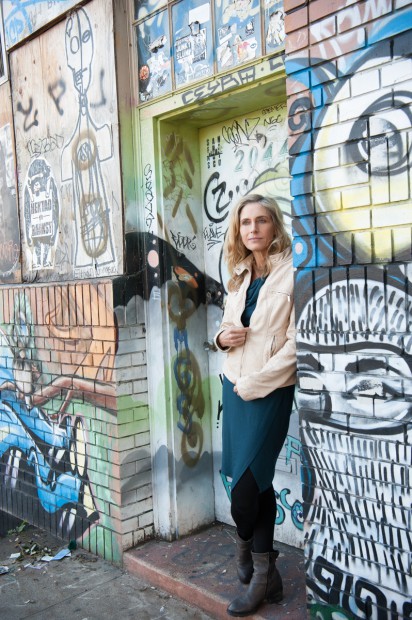 |
|
5. Your recent film Screenagers is a personal quest to find answers to dealing with kids’ screen time. Tell us about the film and when did you decide to film your own family? It started because of my anxiety! My kids wanted more and more screen time and the house was filled with all this tension. There would be tab switching when I entered the room, tech in bedrooms when it wasn’t suppose to be there. I would get mad at them, and then, feel guilty about getting mad. As screen time mounted in all aspects of their lives, such as at school, I suddenly thought—I have to make a film about this. I started by filming many young teens talking about what they thought of social media, video games, etc. Kids’ perspectives are a key element of the film—it is why I think so many youth say that the film speaks to them in many ways. I had not planned to be in the film at all. I was relieved thinking that since so many families were dealing with screen time issues, surely I could find some who would let me film. How wrong I was! I learned the depth of privacy around parenting. I knew I was looking for stories around social media, video games, tech in schools and started to cast bigger and bigger nets to find families willing to be filmed. It took serious time to find all the incredible stories we have in the film but still I wanted to capture stories as they were unfolding—that is what led me to my own family. Tessa was begging for a cell phone and I started filming our in the moment interactions. Fortunately Tessa was used to my always filming so she didn’t think twice about the camera being there. Her candor really steals the show. My struggles are captured in the film and fortunately mentors like Barry, and my past films taught me that the more personal our stories, the more universal they are. Raw emotions are what we can all identify with and emotions lead us to change–far more than any specific facts.
6. With so much success in distribution and viewing, what do you hope Screenagers will accomplish? How does community fit into these solutions? I made the film knowing exactly how I would distribute it—I knew I wanted it to be used as a vehicle to bring together kids, teens, parents, teachers, and others to see the film and have discussions right after the film and ongoing. In just a year we have had over 4,000 public screenings in various schools and communities, and things just keep growing. In terms of impact, the response from kids, parents, teachers, and other has surpassed my hopes. We get countless emails from people telling us how much the film empowered them to make changes in their lives. Just last night I was at a screening in Chicago and a father raised his hand after the film and said “This film has given me such insight—I am going to work with my family in a new way to make changes”. Later a teenage girl told me how she was glad I mentioned how important it is for adults to talk about the positives of tech, not just the negatives. She also told me that she was glad the film brought up how parents should include their kids in deciding on times when tech should be put away.
7. You see film as a tool to educate and promote social change. This seems to be a resounding theme within all of your documentary journeys, tell us how the input of community has given you viable solutions in your discovery process. My passion is to create documentaries that use emotional and disarmingly honest stories to bring to life larger social themes that are under addressed in our society. And equally important is my goal to find novel ways to get the film seen in public screenings. |
There is something powerful that happens when people watch a film together and discuss it afterwards. I remember the first time Tessa saw Screenagers and her first words were “Gosh, I didn’t realize other kids were dealing with rules”. Public screenings can really break down silos. So with each of my feature documentaries and for one of my short ones, I have partnered with other groups to learn more about topics I care about, to partner to get the film out in the world and raise awareness. For example, The National Alliance on Mental Illness provided me useful information as I was making Unlisted and after its completion we partnered to hold community screenings. With Hidden Pictures, about Global Mental Health, I continued this partnership with NAMI, and other local mental health groups. I also came up with the idea to hold a global screening of the film on World Mental Health Day. With the incredible pro bono help of a communications firm, we located 141 US and international mental health organizations to participate in the event, including The World Health Organization. Thinking out of the box is so critical to reaching your audiences.
8. Can you give us a little #bts info/insight on how an aspiring filmmaker can make her dreams a reality? What have been your biggest challenges? Advice to filmmakers and storytellers in general is first and foremost to realize that we are wired to create. So never let your fears of obstacles stop you from your desire to tell stories. Also I would say to do your projects for yourself and from there audiences will follow. If you do the reverse, you will be chasing an unobtainable goal and you will be unfulfilled. That is not to say that you should not be aware of your audience. For example, I knew my audience would be parents and kids for Screenagers, but I looked for stories that I thought were interesting, not the ones that were being told in the mainstream. On a practical note for people just starting out in filmmaking, I highly recommend deciding on a short documentary you want to make and find a short production class to get started. It might happen during the nights or weekends, but it is a great way to get going. When I was doing my medicine Residency at UC San Francisco, I would take film production, editing and shooting classes at The Bay Area Video Coalition—an amazing center that is still in San Francisco today. There is no easy way to fund documentaries but here are my tips. Learn to do as much as you can on your own (I write, produce, direct, shoot and edit). Knowing these skills lets you get a long way into a project before even needing to bring on other people. For funding, consider letter campaigns, Kick Starter type programs and grants. My biggest advice though is to do things on a tight budget—particularly now when a premium is placed on authentic moments over beauty shots. It is all about the story—cliché but oh so true. My biggest challenge is definitely myself. One issue is anxiety. Anxiety is actually fear and it generally is an emotion that does not fit the facts. I often suffer from anxiety when I have to spend money—it can be as small as a restaurant meal. Clearly the situation does not fit the fact…I can afford the meal. Knowing that this trait came in part from a difficult childhood, where I started working young to pay for my expenses, does not take the anxiety away. Fortunately through therapy and the strategy of “opposite action” my anxiety is getting better. The idea is to see if a feeling fits the fact and if not do the opposite. For example, does buying a nice meal mean I will not have any savings left? Will it put me in the poor house? If not, then do the opposite—get the meal. Only by continually not letting the anxiety rule, will the anxiety finally go down. |
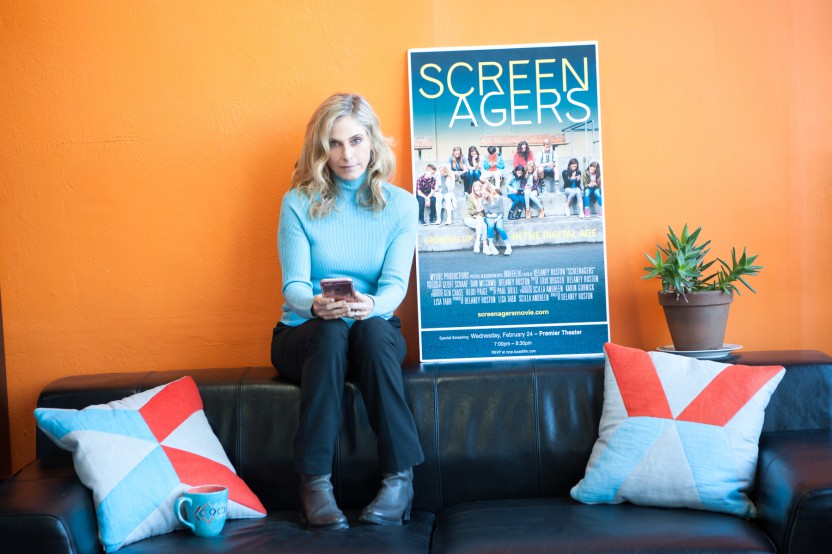 |
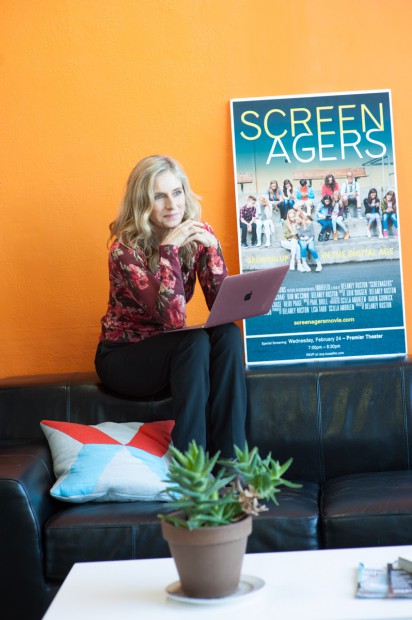 |
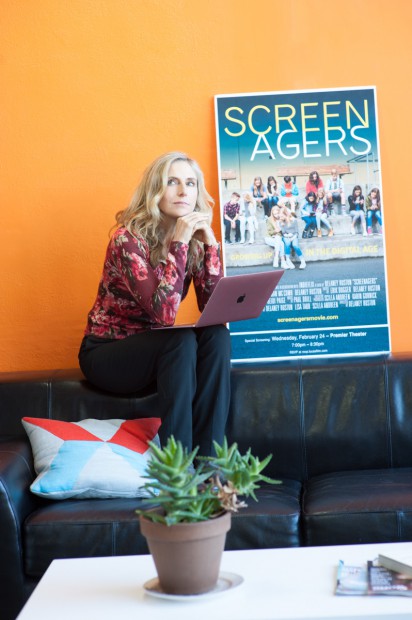 |
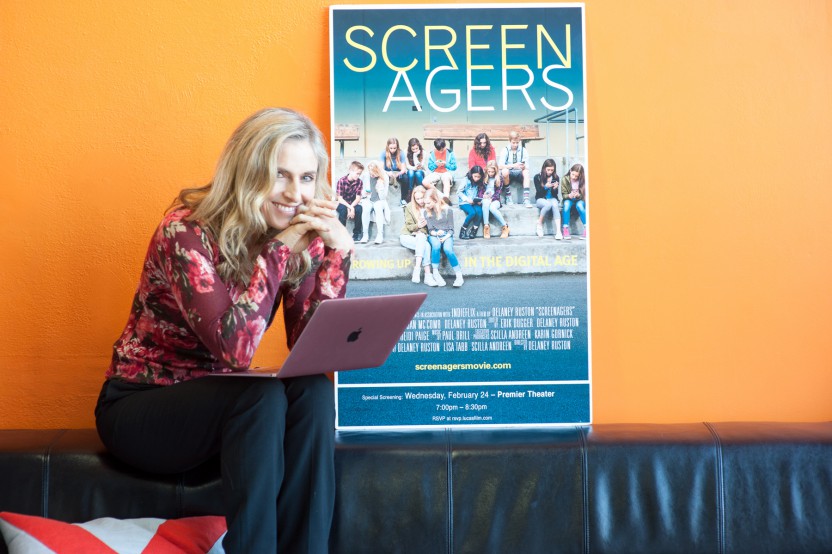 |
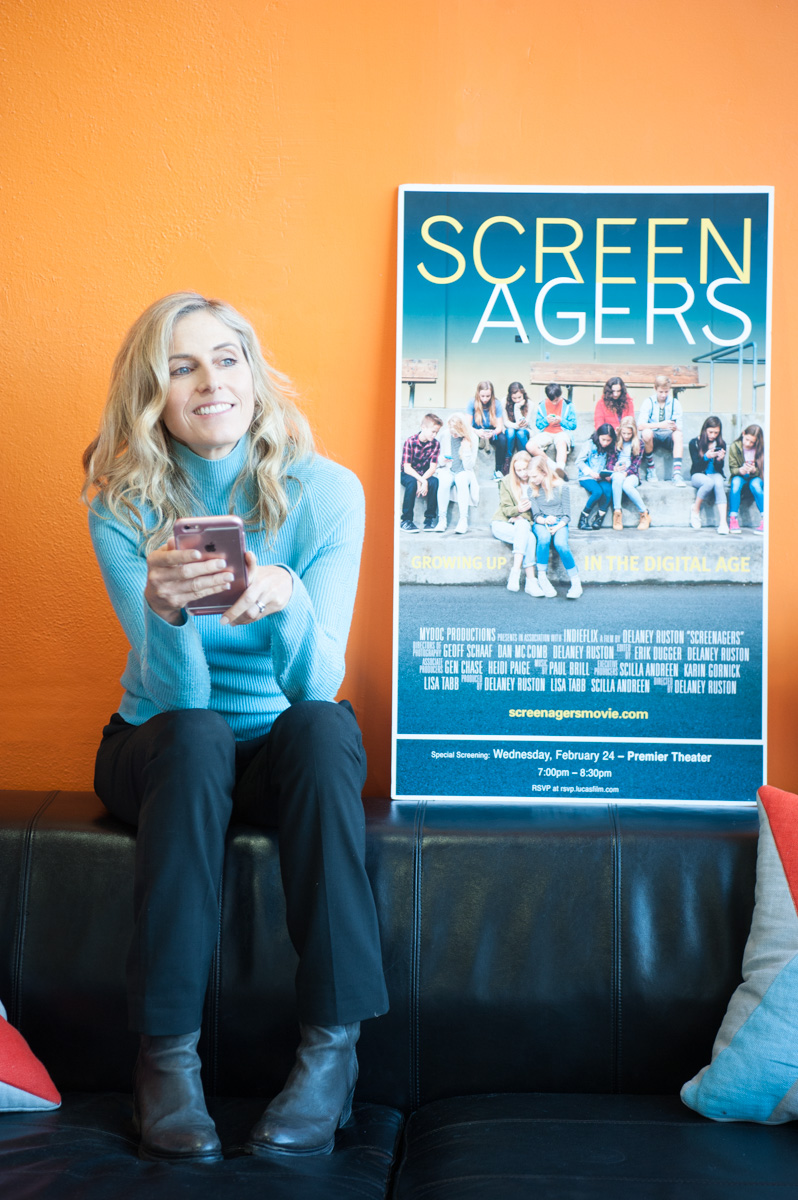 |
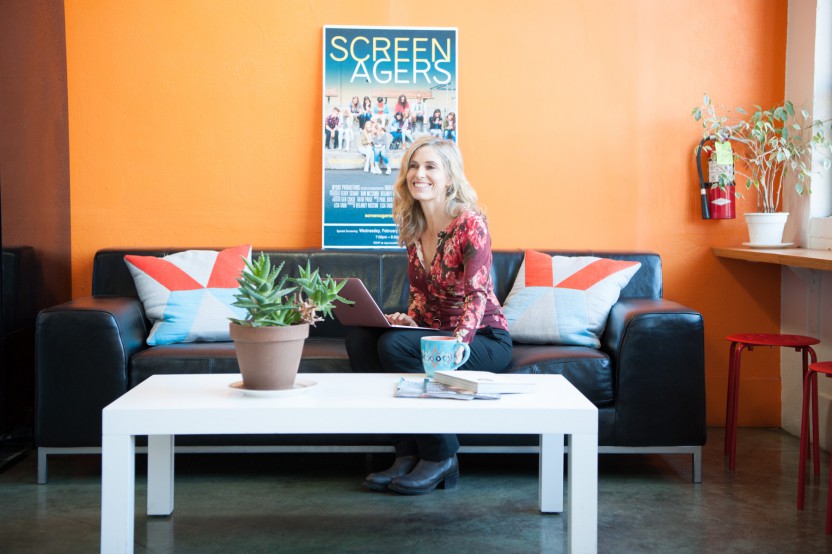 |
|
9. What is your favorite part of being a mom? How has your career influenced your kids? And vice versa? Two things come to mind when it comes to my favorite part of being a mom: First and foremost is the intense feelings of love. When I hug my teens I can literally feel the oxytocin—the “connection” hormone- flowing through my veins. Second, I love how being a mom constantly challenges me to grow in many ways. I have a motto; we are all perfect until we are in relationships. What I mean is that if any of us were on an island by ourselves, no matter what our character traits, we would be perfect. The “imperfections” are only present when it comes to our butting heads with people who are different than us—ie all people. These “imperfections” aren’t bad, they are just differences and the importance is being able to look non-judgmentally at them. Being able to see what is effective in helping a relationship and what is ineffective is key. With my daughter Tessa, I tend to be problem solver and this is really bugging her at this time in her life. It’s understandable-I get it! So now I need to do the work to change the way I am with her. It is hard to change, it takes courage- but the challenge is definitely worth it for the pay off is a better relationship. In terms of my career and my kids –they have had a major impact on my filmmaking endeavors. For example, part of why I got the guts to try to reconnect with my dad (seen in Unlisted) was because my son, Chase, who kept asking about his grandfather. My son’s questions really got me to rethink things. And in the film we see Chase meet his grandpa and the scenes capture such poignancy. After Unlisted I did a film on global mental health. And while making it I wondered why kids and others in the world were not learning about mental health in school. Mental illness affects 450 million people globally, so why would we not teach it in schools? In the film I was able to show a powerful scene of kids in school learning about the struggles of people with mental illness. Looking into the kid’s eyes you can practically see their empathy expanding. |
The film that was most inspired by my children is Screenagers. As a physician I wanted to know what the impact screen time was on not just my kids, but all kids. Most of all I wanted to find solutions—how to best parent in these technology times. I hope that my kids have learned that the most important things we do in life are often the hardest things we do. For me each film is fraught with endless obstacles—years of up and down. They have seen me crying in a ball when precious footage was destroyed by a broken camera or getting frustrated trying to find stories. But they have seen that when I felt a film is truly important, I have never given up on it.
10. What’s next for Delaney Ruston? For right now it is all about seeing Screenagers help as many people as possible. It is not just about getting more communities together to see the film (it can only be watched in community, not at home) but also growing a movement dedicated to empowering families with solutions. A big part of it is Tech Talk Tuesdays (TTT). Each week my Co-Producer, Lisa Tabb and I write short pieces on hot topics and email them to those who have joined TTT. They use these conversation starters to have conversations with their kids about how to have healthy tech time. We also have an ever growing resource rich website. The film is in more demand than ever and this spring Tessa and I will do a two week promotional tour in Australia. I have been in other countries with Screenagers and the discussions that ensue have been very enlightening. I feel blessed that my passion to help families find balance with tech only grows with time. After Screenagers? Well I have no doubt that I will continue making social impact documentaries as well as provide primary care to the underserved. They feed off each other and they feed me—along with my family, friends and chocolate. |
